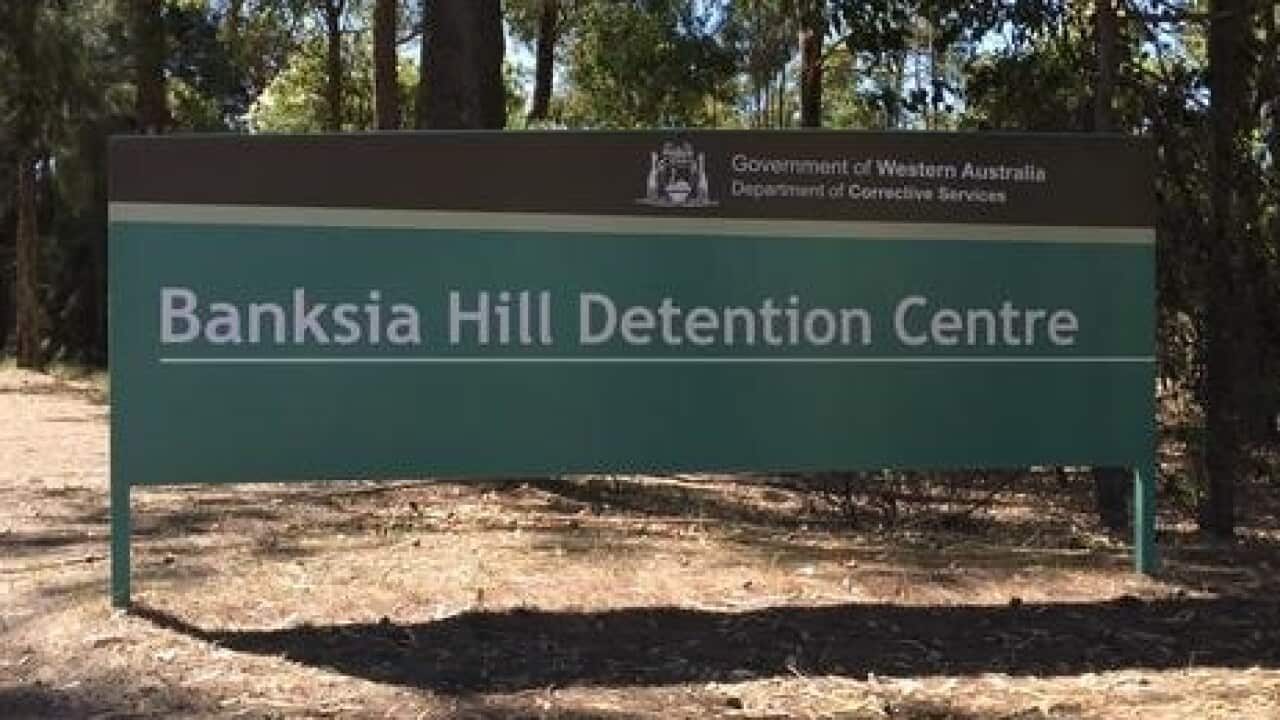WARNING: This article discusses suicide and may be distressing.
A decision by the WA government to move juvenile offenders from Banksia Hill detention centre to the state's main maximum-security prison has been labelled a "complete and utter failure."
Twenty inmates from the centre, some as young as 14, will be transported to a stand-alone unit at Casuarina Prison, with WA’s Department of Justice claiming that the cohort was “causing significant damage and persistent disruption” to the other 116 inmates.
Despite the state government noting it as the only option available for the inmates, youth justice advocates have major concerns for the children's welfare.
“It's a complete and utter failure and is disgraceful,” the National Suicide Prevention and Trauma Recovery Project's Megan Krakouer told NITV News.
“Our children are being killed. There's no question about that. That is evident. This state government of Western Australia are failing our children in relation to youth incarceration, they criminalize poverty, that's a reality right across the country.
“They need to hold their head in shame.”
Ms Krakouer noted the timing of the announcement, coming in the middle of NAIDOC week.
“This week was supposed to be celebrating our culture right across the nation. They had the ball over in Melbourne celebrating Black excellence,” she said.
“But here in WA, children are being removed and taken to the Casuarina Prison.

Young protestors supporting the call for a class action against the treatment of juvenile inmates. Source: Supplied: Megan Krakouer
'Kids don't belong in prison'
In July 2017, the Inspector of Custodial Services found that inmates at Banksia Hill were exposed to the use of spit hoods, solitary confinement, alleged sexual assault and engaged in self-harm and attempted suicide.
Earlier this year, the inspector reported inmates at Banksia were subject to extended periods of time in isolation, experiencing less than half an hour outside of their cells. It also revealed that multiple inmates attempted suicide, with some forming suicide pacts.
Amnesty International Australia Indigenous Rights Lead Maggie Munn said the decision was in violation of the nation's human rights obligations.
“When will governments accept what child health and development experts have been saying for years - that kids don’t belong in prison,” she said.
“It’s not just that they don’t belong though - keeping them in an adult prison - in separate accommodation or otherwise - contravenes our obligations under the Conventions on the Rights of the Child.
“Doubling down on punitive measures to deal with complex issues is going to have the same tragic and predictable consequences that have seen more than 500 Aboriginal deaths in custody since the Royal Commission.”

An observation cell at Banksia Hill. Source: Supplied/OICS
Department of Justice: 'ongoing disruptions'
WA Department of Justice Director-General Dr Adam Tomison said the inmates being removed from Banksia have complex needs, had significant offending histories and have been destroying infrastructure, assaulting staff and harming themselves.
“The gazettal under the provisions of The Young Offenders Act will allow for around 20 detainees to be moved to a designated, standalone unit at Casuarina Prison where they can be more safely managed by Youth Custodial Officers,” he said.
“This newly-built unit will operate as a separated youth detention facility within the prison grounds and provide all services offered at the Centre, allowing for the other detainees at Banksia Hill to return to their normal education, programs and recreation activities that have been affected by the ongoing disruptions.”
WA Corrective Services Commissioner Mike Reynold said the measure is “short-term” and in response to the continual destruction at the juvenile detention centre.
Currently, there are 100 of 260 cells serious damaged with 30 unfit for use. The bill of repair sits above $1.8 million.
The Commissioner said that whilst other options were explored, the Casuarina site was the “only safe and suitable option”.
Ms Krakouer questioned that.
“There were other alternatives. The department Corrective Services, and in fact the attorney general, they did not consult with people who are experts in terms of providing that intense psychosocial support,” she said.
“They did not consult with other key stakeholders. They did not consult with some of the grandmothers or the caregivers of these children.”
The measure was previously employed in 2013 at Hakea Prison.













